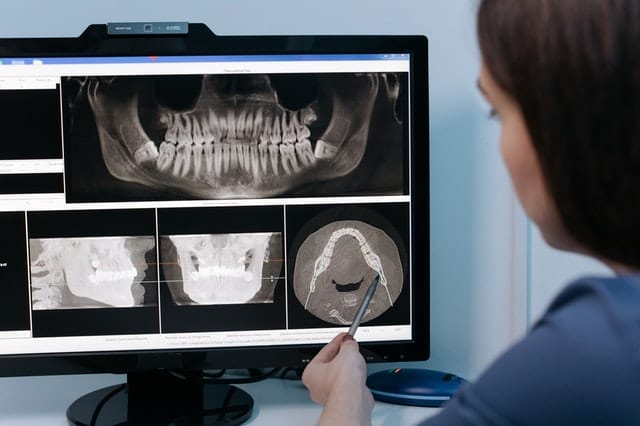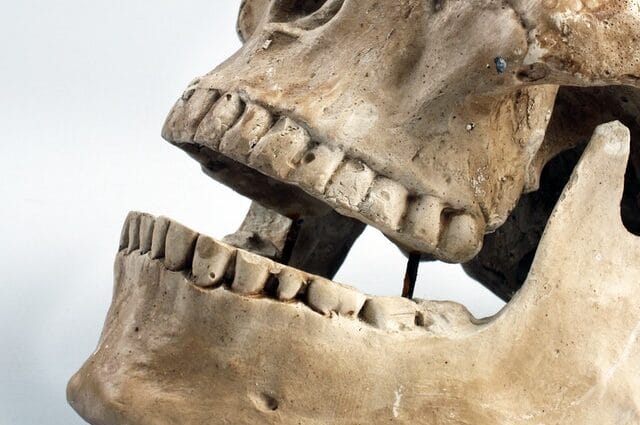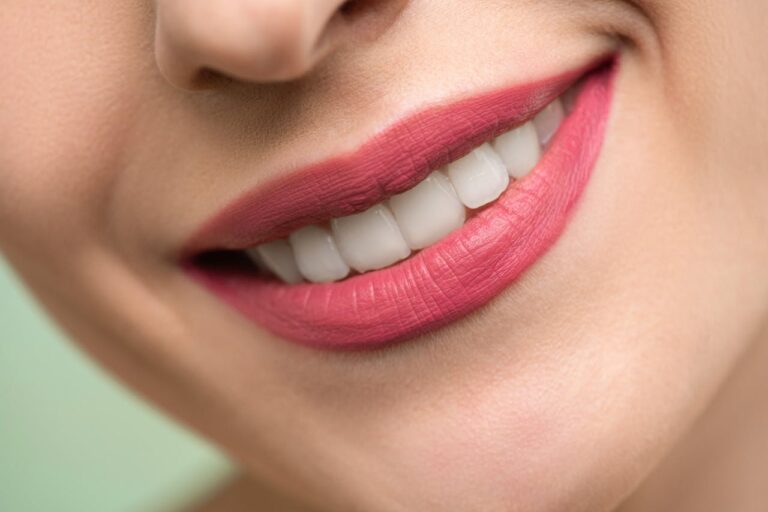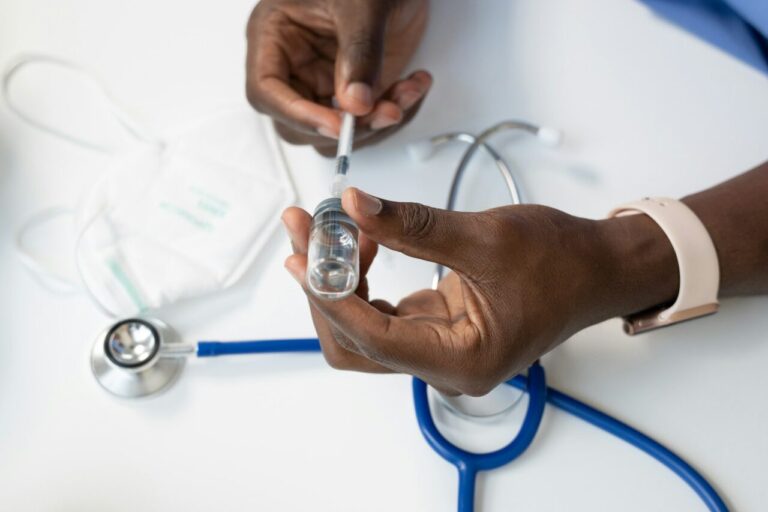Dental bone loss is a common and troublesome condition. The causes of bone loss vary. And the consequences can be severe. Luckily, you can regrow bone around your teeth to reverse this damage.
Fortunately, bone loss is both preventable and treatable. Modern dental techniques and a few lifestyle changes can help prevent dental bone loss and assist in the regrowth of lost bone.
Today, we’ll show you how to increase bone density and longevity and how to keep on top of your dental health as a whole.
Common Causes of Dental Bone Loss
The most common form of dental bone loss occurs from losing a tooth. While teeth themselves aren’t made of bone, losing a tooth can lead to the deterioration of the jawbone.
With healthy teeth, chewing stimulates the jawbone daily. However, if you lose a tooth, the section of the jaw above or beneath the gap begins to recede, pressure increases on the other teeth and existing teeth move around ultimately contributing to gum disease.
Gum diseases if left untreated leads to a more severe condition called periodontitis. Periodontitis is the advanced form of gingivitis, an infection in the gums that leads to deterioration of first the soft tissue and then the harder supportive structures.
With periodontitis, the gums become inflamed and begin to recede around the teeth, increasing the risk of further tooth loss. As the gums recede, the supporting bone beneath them diminishes.
The leading cause of periodontitis is improper or lack of proper dental hygiene. Luckily, you can prevent it with brushing, flossing, and regular dental appointments.
What Are Bones Made Of?
To understand how to regrow bone around teeth naturally, you first have to understand what makes up healthy bones and why they begin to deteriorate.
Bone is living tissue made primarily of collagen and reinforced by calcium phosphate. Collagen is a protein—the most prevalent protein found in the body. It’s made of essential amino acids within the body, mostly in connective tissue. Calcium phosphate is a mineral. It’s introduced to your body through food or by a supplement.
How Does Bone Loss and Growth Happen?
Bone loss occurs when bone resorption outpaces bone growth. Bone resorption is the process when minerals like calcium found in bone get reabsorbed into the blood, whittling away the bone.
On the other hand, bone growth is the opposite process, where calcium from the blood replenishes bone stores.
As a child, your bones grow rapidly and increase in length and thickness. As you age, bone growth slows.
By age 30, most adults will have reached “peak bone mass.” And as you continue further into adulthood, increasing rates of bone loss can lead to complications such as osteoporosis and bone fractures.
While your bones stop growing longer after reaching adulthood, it’s still possible to increase bone density. Higher density can strengthen the bone and make it more resistant to damage.

Calcium
The best method to regrow bone around teeth naturally is to eat well. Since calcium is essential for bone growth, it’s vitally important to receive an adequate intake.
The National Institutes of Health (NIH) recommends a minimum daily intake of 1,000 mg of calcium for all adults and an increased amount for older adults. Eating a diet rich in calcium can provide your bones with this essential mineral required for growth.
Foods with high sources of calcium include:
- Milk
- Dairy products
- Leafy greens
- Tofu
- Soy and almond milks
- Fortified bread and juices
If you don’t receive adequate calcium in your diet, you can speak with a medical professional about calcium supplements.
Vitamin D
Another approach for how to regrow bone around teeth naturally is vitamin D supplementation. While calcium plays the primary role in bone growth, it isn’t adequately absorbed into the body without proper levels of vitamin D present.
Vitamin D comes from sunlight, but the NIH estimates that 41.6% of the population receives insufficient vitamin D. People with dark skin, those who live in places without frequent sunlight, and older individuals are all at increased risk for vitamin D deficiency.
Since vitamin D is essential for calcium absorption, people who don’t receive adequate intake are more susceptible to bone loss. Fortunately, vitamin D is available as an over-the-counter supplement that can offset this deficiency.
How to Prevent Bone Loss Around Your Teeth
Knowing how to regrow bone around teeth naturally is important, but preventing initial bone loss is even better. As the old saying goes, “an ounce of prevention is worth a pound of cure.”
The following tips can help you fight bone loss around your teeth:
- Brushing your teeth twice a day for two minutes
- Keeping up a regular flossing routine
- Quitting smoking
- Eating a balanced diet high in calcium and vitamin D
- Making regular hygiene appointments with your dentist
Keeping up these simple routines can prevent bone loss before it’s too late.
Dental Grafts
For some people, substantial jawbone loss has already occurred. In that case, you may need dental interventions such as dental grafts.
Dental bone grafting is an effective dental technique that inserts a synthetic material where the bone has been lost. This material acts as a framework for future regrowth.
After a graft, the jawbone regrows around the structure, creating new bone where a dentist can surgically place dental implants.
Regrowth
Knowing how to regrow bone around teeth naturally can make a vast difference in your dental health. Preventive measures, appropriate nutrition, and supplementing your diet with vitamins and minerals are all effective methods of strengthening your jawbone and increasing its density and strength.
LANAP
After loss of jaw bone due to periodontal disease, a natural approach to regaining and preventing further loss is possible with the help of a dental procedure called LANAP. This is proven, tested and has FDA clearance.
In fact, the PerioLase MVP-7 became the only 510(k) Food and Drug Administration-cleared device—in dental and medical fields—that can make the claim of attachment-apparatus regeneration. The FDA 510(k) clearance 151763 reads, “Periodontal regeneration – true regeneration of the attachment apparatus (new cementum, new periodontal ligament, and new alveolar bone) on a previously diseased root surface when used specifically in the LANAP protocol.”
If you live in New York City, Advanced Dental Arts is the right place for you. We can examine your teeth and jaw, and advise if you’re a candidate for LANAP protocol.
Book an appointment today and trust your Greenwich Village dentist to give your dental health something to smile about.




